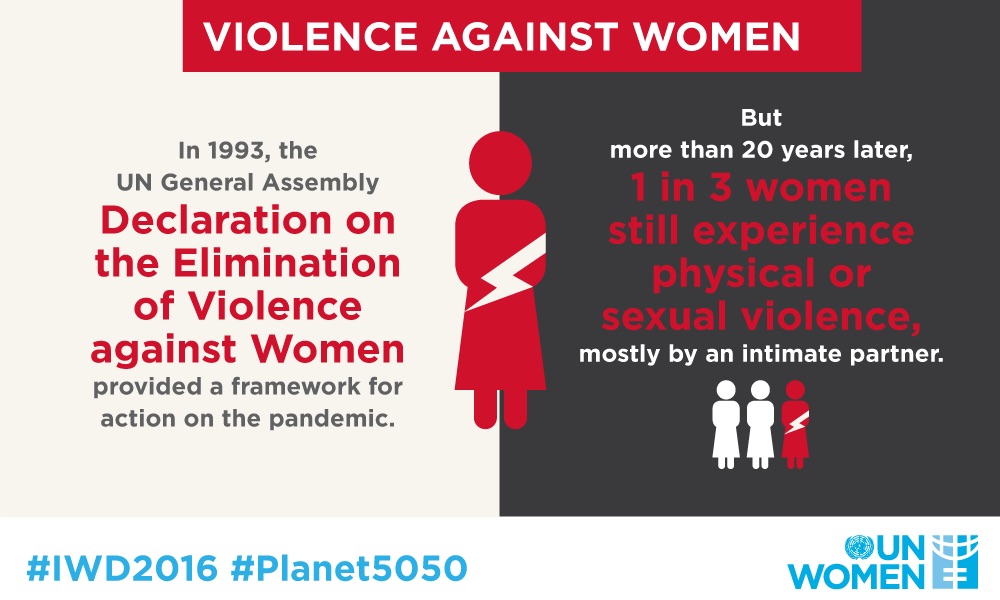
Total gender equality is 117 years away, according to the World Economic Forum.
And the organizers behind today’s International Women’s Day want us to do something about it by “pledging for parity”:
“Each of us can be a leader within our own spheres of influence and commit to take pragmatic action to accelerate gender parity.”
Statements like that can sometimes leave Bible-believing Christians feeling a little twitchy. We’re used to having to defend the differentness of men and women. Anything with a hint of the “f-word” (“feminism”, that is…) makes us suspicious. And of course, some of the issues are complicated. Is it a problem that only 5% of Fortune 500 CEOs are women? Bible-believing Christians might respond with very different answers.
But in many other ways, the International Women’s Day (IWD) agenda is one that Christians can—and should—get right behind. Much of it surrounds issues of sexual violence, maternal deaths, girl’s education and child marriage. The Bible’s repeated emphasis on looking after widows shows that care and justice for vulnerable women is very important to God, and should be important to us too:
“Religion that God our Father accepts as pure and faultless is this: to look after orphans and widows in their distress and to keep oneself from being polluted by the world” (James 1 v 27)
The IWD agenda is fundamentally other-centered: less about me-and-my-rights, and more working together for the rights of others.
If we avoid these issues then we’re not properly reflecting the Bible’s design for gender. Christians should be on the front foot in practically tackling them, not feeling like we’re permanently on the defensive.
In the discussion about gender parity, Christians have two unique viewpoints to offer—and they’re two great truths to speak out with and celebrate on International Women’s Day.
1. We have better news for women
For all these women, gender parity—“the state or condition of being equal, especially as regards status or pay”—might be 117 years away. But in another sense, it’s not. It’s now.
In God’s sight, men and women are equal in status—and what a status! Every woman is a creature made in God’s image, and endowed with inherent dignity, worth and value (Genesis 1 v 27).
In God’s sight, men and women are equal in status—and what a status!
It’s a status that doesn’t need to be fought for, struggled for or achieved— although we certainly do need to fight for this equality to be recognized in practice. It’s a status that just is—in the very core of our being. That’s brilliant news. On a day that’s all about celebrating women, it’s a wonderful reason to celebrate!
2. We have something better than gender parity
But better than that, God has pledged women something even more outstanding—parity of status with the Son of God:
“The Spirit you received brought about your adoption to sonship. … Now if we are children, then we are heirs – heirs of God and co-heirs with Christ” (Romans 8 v 15, 17)
God’s put the offer on the table: the status of being a co-heir with Christ. Neither is this a status that we need to fight for, struggle for or achieve. It’s a status that we simply receive, by believing that “God [sent] his own Son in the likeness of sinful flesh to be a sin offering” (v 3).
God’s put the offer on the table: the status of being a co-heir with Christ.
If we’re co-heirs with Christ, then the chances are we’ll be coming into our inheritance a lot sooner than 117 years from now. [Life expectancy – your age now = a rough estimate]. If we’re believers who are feeling slighted, sidelined or sinned against in some way, that parity is something to remember, treasure and celebrate in the here and now. And it’s a parity to hold out to others—even as we seek to love and pursue justice on behalf of women in our workplaces, neighborhoods, churches and around the world.
Join the conversation and comment below. You can also like us on Facebook, follow us on Twitter, subscribe to our YouTube Channel, and download The Good Book Company App straight to your phone or tablet.